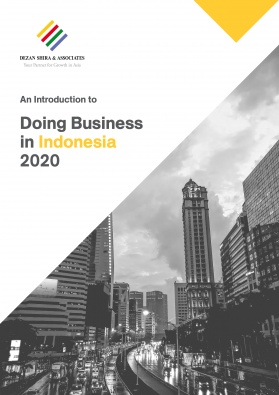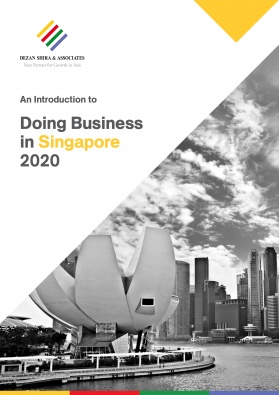Audit and Compliance in Brunei: A Guide for Foreign Investors
Brunei adopts two types of accounting standards, the IFRS, which is issued by the IASB, and the Brunei Darussalam Accounting Standards (BDAS). Private and public companies in Brunei must have their accounts audited once every year, although private companies are not required to submit their accounts to the Registry of Companies and Business Names.
The Companies Act regulates the audit and accounting requirements that companies must adhere to in Brunei.
A company limited by shares with no more than 50 shareholders must audit their accounts but are not obligated to submit their accounts to the Registry of Companies and Business Names (ROCBN). Companies limited by shares (public companies) of more than 50 shareholders, or companies limited by guarantee are obligated to have their accounts audited in addition to filing these accounts to the ROCBN.
Foreign investors should use the services of registered local advisors to ensure they stay compliant with these regulations.
Auditing and compliance requirements
Companies must keep proper accounts and books with respect to;
- All sales and purchases of goods and services by the company;
- Every amount of money received and paid by the company; and
- A record of all the assets and liabilities of the company.
Annual general meetings
A company’s first AGM should be held within 18 months after incorporation and subsequent AGMs are to be held once every year and cannot be more than 15 months apart.
The meeting needs to be called in writing at least 21 days before the start date, with the directors, at least seven days before the meeting is held, sending a statutory report to every member of the company.
This report must be certified by at least two directors and must state:
- The total number of shares allotted;
- The total number of cash received by the company;
- Names and addresses of the directors, auditors (if any), company secretary, and managers and;
- Company receipts.
Appointing auditors
A company must appoint an auditor to have its accounts audited. These appointments are to be done at the AGM, and the auditor(s) will hold this position until the next AGM. The Public Accounts Oversight Committee (PAOC) is the main body responsible for regulating public accountants in the country.
Companies must allow auditors access to the accounts and books of the company and are entitled to enquire from the directors and managers such information and explanation.
The remuneration of the auditor is decided and fixed in the AGM unless the auditor is appointed to fill a vacancy, in which case the directors will decide the remuneration amount.
Private companies are only exempted from audit requirements if:
- Revenue for that year does not exceed BND 1 million (US$703,000);
- Its shares are held, directly or indirectly, by another corporation; and
- The company has no more than 20 members.
In addition to the aforementioned criteria, dormant companies – those that have no accounting transactions – can also be granted audit exemptions. They must be:
- Dormant from the time of incorporation; or
- Were dormant from the previous financial year.
Audit committees
Public companies must have an audit committee, who will elect a chairman from amongst them who is not a director or employee of the company. The function of the audit committee will be to:
- Review audit plans with the auditor;
- Evaluate internal accounting controls;
- Evaluate audit reports; and
- Evaluate balance sheets.
Fiscal periods
All companies must file their tax returns using the e-filing system (STARS) by June 30 of every year. Businesses are not allowed to submit consolidated returns with each company having to file a separate return.
Accounting standards
Brunei adopts two types of accounting standards, the IFRS, which is issued by the IASB, and the Brunei Darussalam Accounting Standards (BDAS).
The IFRS principles are used for entities that have public accountability (public interest entities, PIE), whereas BDAS is issued for non-public interest entities. The entity has public accountability if its debt or equity instruments are traded in a public marketplace or it is in the process of doing so.
BDAS was introduced to provide transparency of financial statements prepared by non-public interest entities (non-PIEs), as previously there were several ways businesses could present their financial statements, thus often not reflecting the company and industry they operate in.
Annual reports
As stipulated in the Companies Act, annual reports must be filed within 28 days after the AGM. The company’s officers, such as directors or secretary, can file the annual returns; the company can also engage the services of a professional firm to file on their behalf.
The required documents needed to file annual reports are:
- Annual return form;
- Date of AGM with proof;
- Audited financial statements (for public companies); and
- Cover letter stating the name of the company and its registration number.
Dormant companies are still required to submit annual returns and will be subject to any fees payable to the Registrar.
Penalties for non-compliance
A fine of BND10,000 (US$7,300) and imprisonment of up to 12 months can be imposed for entities that fail to file. Businesses that do not hold an AGM can be liable to a fine of BND5,000 (US$3,600), with directors also liable to a fine of BND2,500 (US$1,800).
About Us
ASEAN Briefing is produced by Dezan Shira & Associates. The firm assists foreign investors throughout Asia and maintains offices throughout ASEAN, including in Singapore, Hanoi, Ho Chi Minh City, and Da Nang in Vietnam, in addition to Jakarta, in Indonesia. We also have partner firms in Malaysia, the Philippines, and Thailand as well as our practices in China and India. Please contact us at asean@dezshira.com or visit our website at www.dezshira.com.








